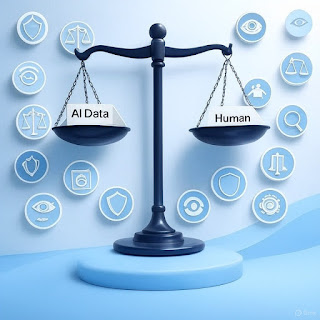How AI is Transforming Businesses in 2025: 5 Must-Know Trends
Written at 04:20 AM +06 on Saturday, June 21, 2025, this article covers five transformative AI trends business leaders must understand to stay competitive.
1. Hyper-Personalized Customer Experiences
AI enables businesses to analyze customer behavior and deliver real-time personalization. Netflix uses AI to recommend content, accounting for 80% of user engagement (Forbes, 2025). E-commerce platforms report a 30% boost in conversions using AI-driven recommendations.
Industries like finance and healthcare are leveraging AI for tailored experiences—custom loan packages or wellness plans. A 2025 Gartner report shows 20% higher retention and 25% more revenue per user for businesses using AI personalization.
Why It Matters: In a market where 70% of consumers switch brands due to poor personalization (Accenture, 2025), AI provides a competitive edge.
Actionable Tips:
• Start small with tools like Salesforce Einstein or HubSpot AI.
• Integrate data across platforms (web, mobile, social).
• Use AI-powered sentiment analysis to continuously refine campaigns.
Alt Text: “AI-powered e-commerce website displaying personalized product recommendations, 2025.”
2. Streamlining Operations with AI Automation
Automation is eliminating repetitive tasks and optimizing workflows. In 2025, 60% of finance and HR functions (e.g., payroll, invoicing) are automated, saving 25+ hours weekly (McKinsey, 2025).
Customer service is transformed by tools like xAI’s Grok, which cut support costs by 40%. Manufacturers automate predictive maintenance, logistics firms reduce delivery planning time by half.
Why It Matters: AI automation reduces costs by 30% and minimizes errors.
Actionable Tips:
• Identify and automate repetitive processes.
• Use platforms like UiPath or Grok AI.
• Upskill staff for managing and scaling automation tools.
Alt Text: “AI robots and digital dashboards streamlining warehouse operations, 2025.”
3. Generative AI: The Creative Revolution
Generative AI tools (e.g., Jasper.ai, MidJourney) enable fast, high-quality content creation. In 2025, 45% of marketing teams generate 70% of their content using AI, reducing time and cost (HubSpot, 2025).
From blog posts to Instagram graphics to product design, businesses can now compete with larger players.
Why It Matters: Generative AI reduces creative costs by 40% while maintaining quality.
Actionable Tips:
• Test tools like Copy.ai, Canva AI, and MidJourney.
• Set content production goals (e.g., 1 campaign/month).
• Partner with AI developers for customized outputs.
Alt Text: “Marketer using generative AI to create vibrant social media content, 2025.”
4. Ethical AI: Building Trust in a Digital World
Ethical AI is a top priority. 70% of consumers in 2025 prefer brands that use AI responsibly (Deloitte). Regulations like the EU AI Act mandate transparency and fairness in AI systems.
Companies like Microsoft now build “explainable AI” into their platforms to address bias and improve trust.
Why It Matters: Ethical lapses can cost companies up to 15% of their market share (Accenture, 2025).
Actionable Tips:
• Run AI audits using tools like IBM AI Fairness 360.
• Publish an AI ethics policy on your website.
• Ensure transparency in hiring, finance, and customer-facing tools.
Alt Text: “Balanced scale representing ethical AI with fairness and transparency, 2025.”
5. Fortifying Cybersecurity with AI
With ransomware up 35% in 2024 (IBM, 2025), AI is now essential in cybersecurity. Tools like Darktrace, CrowdStrike, and SentinelOne detect threats faster than traditional systems.
A financial institution using AI in 2025 detected a breach two days before impact, preventing a $2 million loss.
Why It Matters: The average cost of a breach is now $4.5 million (Ponemon Institute, 2025).
Actionable Tips:
• Deploy AI-powered security platforms.
• Run bi-annual team training to reduce human errors.
• Simulate attacks to test system defenses.
Alt Text: “AI-powered cybersecurity shield protecting a digital network, 2025.”
Conclusion
AI is the engine driving business transformation in 2025. Whether through personalized customer experiences, automated operations, creative content generation, ethical safeguards, or advanced cybersecurity—AI is now a strategic imperative.
Start with small, measurable projects. Choose the right tools. Upskill your team. Test, learn, and scale.











No comments:
Post a Comment